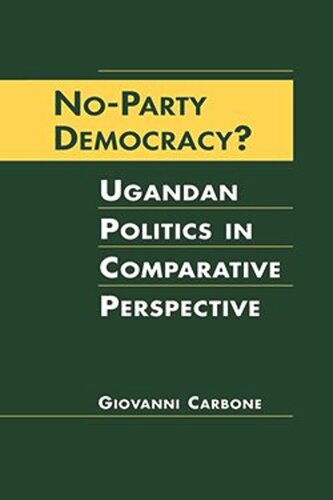

Most ebook files are in PDF format, so you can easily read them using various software such as Foxit Reader or directly on the Google Chrome browser.
Some ebook files are released by publishers in other formats such as .awz, .mobi, .epub, .fb2, etc. You may need to install specific software to read these formats on mobile/PC, such as Calibre.
Please read the tutorial at this link: https://ebookbell.com/faq
We offer FREE conversion to the popular formats you request; however, this may take some time. Therefore, right after payment, please email us, and we will try to provide the service as quickly as possible.
For some exceptional file formats or broken links (if any), please refrain from opening any disputes. Instead, email us first, and we will try to assist within a maximum of 6 hours.
EbookBell Team

4.8
44 reviewsAre political parties an essential element of democracy? Or can a no-party system constitute a viable democratic alternative? Giovanni Carbone examines the politics of Museveni’s Uganda to illustrate the achievements, contradictions, and limitations of participatory politics in the absence of partisan organizations. At a time when multiparty reforms were sweeping the globe, Uganda opted for a controversial, no-party democratic model. The country’s politics over the past two decades thus provide the perfect opportunity for addressing the many questions—theoretical, empirical, and comparative—that the notion of a no-party system of elected government raises. Carbone’s analysis of how a no-party electoral regime actually works (or doesn’t) in Uganda fills a gap in both democracy studies and the study of African politics.